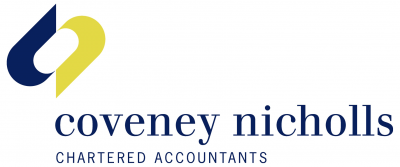Sinking a lot of time into property management accounting probably isn’t the reason why you invested in property, either as an individual or limited company. Regardless, you’re responsible for some basic accounting practices.
But, if you’re new to property management accounting, you might not know where to begin, so we wrote this beginner’s guide to help. Let’s get started!
What does property management accounting involve and why is it important?
Property management accounting is the process of managing and recording financial transactions related to a property. This includes rent payment, expenses related to maintenance and repairs, as well as management costs.
Accounting is essential for success in the world of real estate; it allows a landlord or property management company to monitor their income and expenses, ensure compliance with tax regulations and maintain their financial health.
It’s also crucial in reducing the amount of money you owe to HMRC, as it’s only through property accounting that you can successfully claim for tax deductions.
Getting started with property management accounting
Accountancy isn’t something that you can simply walk into without learning the basics. But if you have a knack for numbers and the time and patience to learn, you can get started pretty quickly by yourself.
Here are the key steps to get started.
1. Create a budget
Creating a budget should be high on your list of priorities. This involves estimating your income and expenses for the year, and taking into account factors such as rent, maintenance costs, property taxes, insurance, and utilities.
Doing this will give you a clear idea of your financial situation and help you plan for the future.
2. Open a separate bank account
If you haven’t already, it’s a good idea to separate your personal bank accounts from your business. That way, it will be easier to track your income and expenses — and make it easier to claim tax deductions for every single business expense.
3. Choose an accounting method
Sole traders and partnerships prepare their business accounts and calculate taxable profits by using one of two methods — the cash basis or the accruals basis.
The accruals basis recognises revenue and expenses at the time a business earns or incurs them, regardless of when payment is actually received or made.
This is in contrast to the cash basis. Under this system, revenue and expenses are recognised only when cash is received or paid.
While the cash basis is simpler and more straightforward, most businesses and accountants agree the accruals basis is better because it presents a more accurate picture of a business’s finances over a long period of time.
4. Record transactions
Now it’s time to record all financial transactions related to your property management business.
There are two types of transactions: accounts payable and accounts receivable, which essentially mean expenses and income in accounting terms.
To help you do that, make sure you record all your transactions as they arise. Otherwise, you’ll have to catch up on your bookkeeping, which can be time consuming to do, especially if you’ve misplaced some receipts and invoices.
You might also want to consider property management accounting software, which can ease the process by automatically transferring and sorting data from scanned documents. Otherwise, you can use regular spreadsheets to manually record your transactions.
5. Bank reconciliation
Bank reconciliation means checking your recorded transactions against your bank statements to ensure they match. Doing this helps identify errors and ensures your financial records are accurate.
Again, you can do this manually or use property management accounting software, which will help you to quickly check the figures.
6. Prepare financial statements
Preparing your financial statements is an important part of property management accounting, as they should accurately reflect your financial health to help you make informed decisions. If you’re running a property management company, investors will be particularly interested in your statements for the same reason.
There are three main types of financial statement:
- Balance sheet. This records your assets and liabilities to calculate how much money would be left over if your business went bust tomorrow (known as equity).
- Income statement. Also known as the profit and loss statement, this shows your net income over a certain period of time.
- Cashflow statement. This breaks down your cashflow to provide valuable information about your liquidity and ability to meet financial obligations.
Need help with your accounting?
What we’ve written is a simple guide to get you started, but there’s more to accounting — we didn’t even have time to cover property taxes!
So, if you need help with any aspect of your accounting or bookkeeping, don’t hesitate to get in touch with us.
We have three locations — Reigate, London and Sussex — with our staff spending as much time as they can in each location. If you’re looking to jump straight into property, just ask for Jeff Kelly or John Mabey.
Talk to us about your property management accounting.

